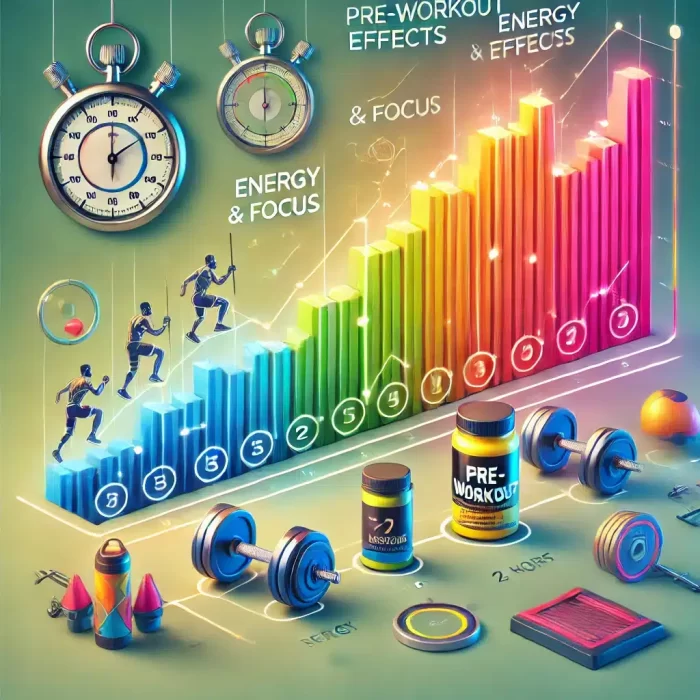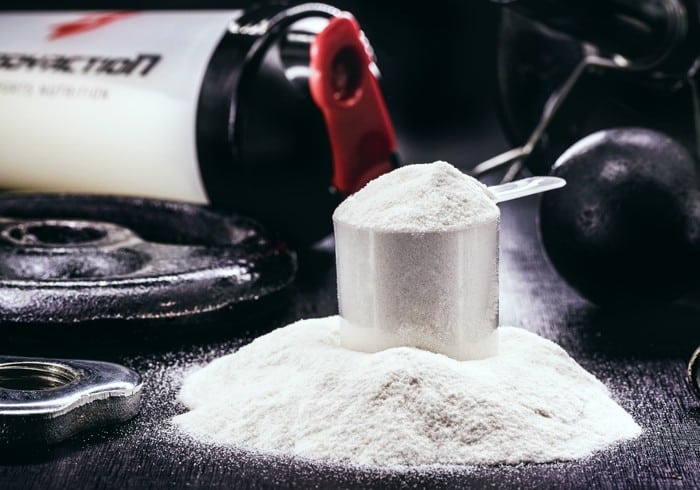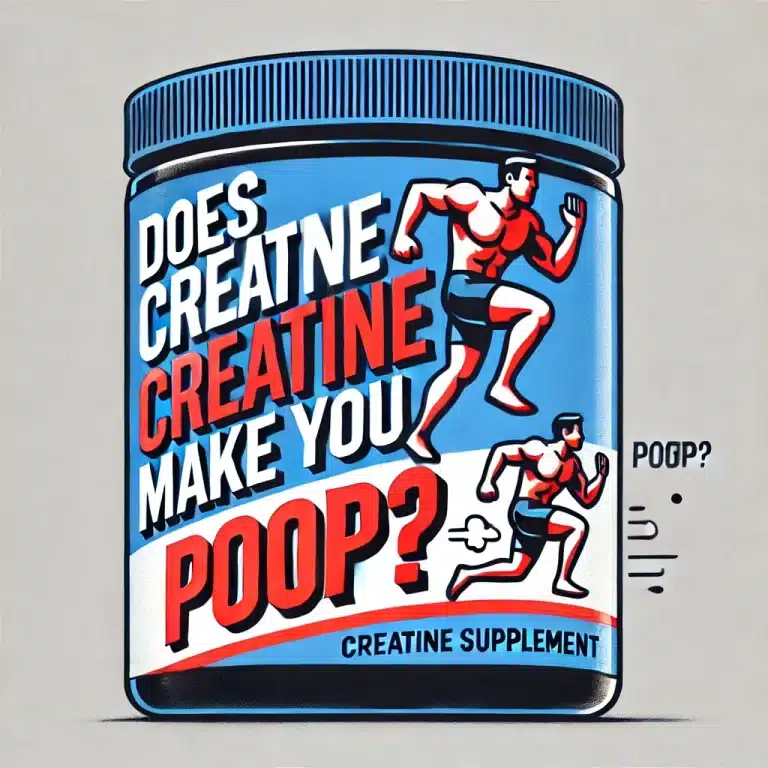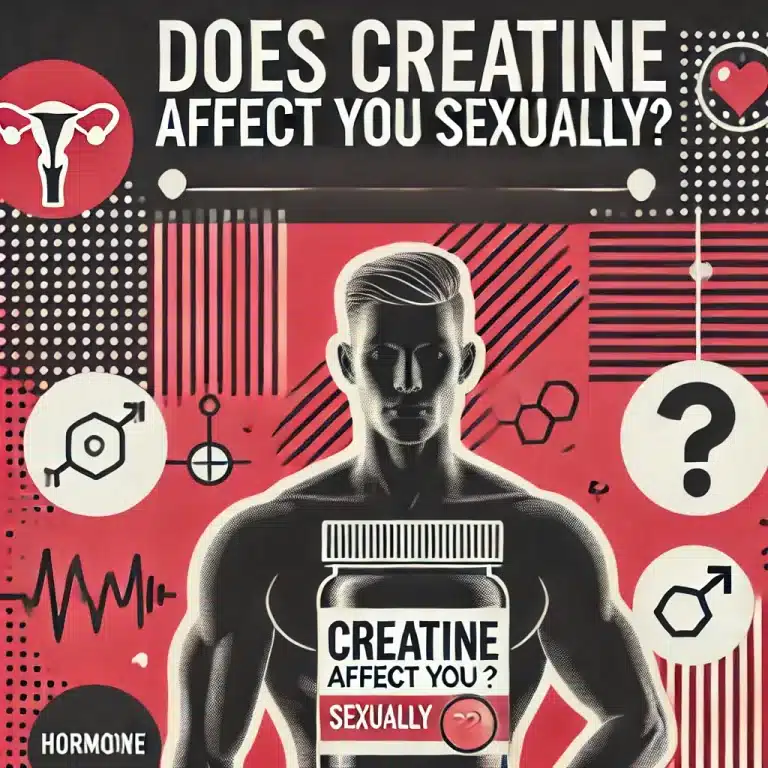How Long Can Pre-Workout Last?
You’re not alone if you’ve ever scooped pre-workout and discovered yourself pacing like a caged animal waiting for your warm-up set to start. That instant when your body tingles, your heart begins to pulse like a drum solo, and you drive skyward? That’s pre-workout, doing precisely what it was meant to do.
Though the kick is obvious, the length? The clarity of that part is not very great. While some people ride the wave for three, four, or even six hours, others feel it wane after one hour. Like when you’re lying in bed at 2 a.m., wide-eyed, heart racing, and regretting every life decision that led to you taking pre at 7:30 p.m., that wired feeling sometimes follows you long after you’ve racked your last plate.
So, How long can pre-workout last? More significantly, though, how long ought it to last? Here we are precisely exploring this.
Knowing how pre-workout works, how long it lasts, and how to time it appropriately will help you whether your goals are better focused during your lifts, chasing a killer pump, or just dragging yourself through another training day following a terrible night’s sleep.
From the physics to the sensations to the real-life tales you most likely know, let’s dissect everything.
When and How Fast Does Pre-Workout Start Working?
Most pre-workout supplements wait roughly 15 to 45 minutes following consumption to kick in. Warm up to the time frame. This is the window through which the components will be absorbed into your bloodstream and start to show performance-enhancing effects.
Because of various elements including the exact composition of the supplement, your body’s unique metabolism, and whether you have taken the supplement on an empty or full stomach, the time it takes to experience the effects can vary from person to person.
If you pre-work out on an empty stomach, it usually absorbs faster, and you can feel the results right away, maybe in 15 to 20 minutes.
Should you have eaten a meal before using the supplement, you may discover that the energy boost and other effects take approximately 45 minutes to manifest.
Look also for the kind of pre-workout components. While some, like beta-alanine or creatine, may take time to build up in the body to experience their effects, stimulants like coffee are fast-acting and can enhance attention and energy in the near term.
Seeing how you react to those components helps you to decide when to have a pre-workout. When using pre-workout vitamins, bear in mind the following to ensure you are reaping advantages exactly when most needed: Usually, pre-workout powder should be consumed thirty minutes before your workout. This time achieves a balance but guarantees that every vitamin you take can be completely absorbed to support your performance.
How Long Can Pre-Workout Last?
Ignoring the pump and endurance element, the benefits of a pre-workout usually last anywhere from 2 to 6 hours based on the formula and your response. Let us start ingredient by ingredient:
- Caffeine: Most pre-workouts start their energy drive from caffeine. With a half-life of about three to five hours, caffeine will stimulate for hours. Still, peak effects usually fall in the first one to two hours. Though its effects lessen gradually, if caffeine is taken later in the day, it can remain for a long time and disrupt sleep. Timing your intake is therefore absolutely vital.
- Beta-Alanine: Beta-alanine generates the paresthesia, or tingling sensation, which takes about 60 to 90 minutes to go away as your body breaks down the chemical. Beta-alanine increases endurance even if the sensation passes off during your workout. Its long-term advantages depend on continuous use over time instead of its instantaneous nature.
- L-Citrulline: During your activity, the 1 to 2-hour-long vasodilation and muscular pump effects will help you. Combining water and a balanced diet helps to maximize these effects.
- Creatine: Creatine offers long-term advantages but does not provide sudden performance gains. Rather, over weeks or months, creatine builds up in your muscles with use, providing consistent increases in strength and power rather than during a single exercise.
- Other Ingredients: Many pre-workout pills contain other secondary substances such as taurine, tyrosine, or B vitamins. Though they are not as strong as main components like caffeine, these can have mild, supporting benefits on energy and concentration that last several hours.
The whole length of a pre-workout pill is effective depending on your natural metabolic rate and tolerance levels.
While some individuals report the benefits fading as quickly as 2 or 3 hours, others may be alert and concentrated for as long as 6 hours.
Factors That Influence How Long Pre-Workout Lasts:
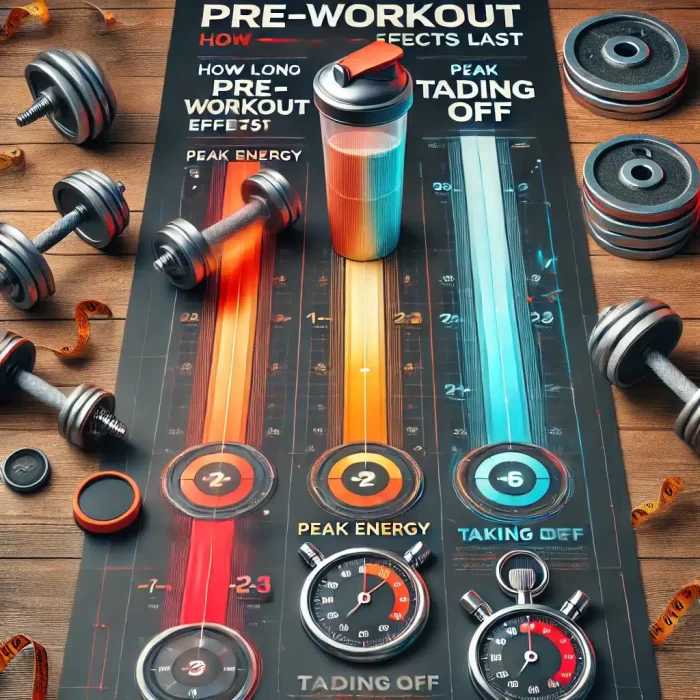
Several factors can impact how long pre-workout lasts in your system and how potent the effects feel:
Development of Tolerance:
Caffeine dose must be increased over time to achieve the same effects. This means that the jitters and buzz of caffeine may not stick around as long or feel as intense for people who come back to coffee, energy drinks, or other caffeinated products often. Try taking a break from pre-workout supplements for a week or two every few months to reset your tolerance.
Pre-Workout and Your Body Weight and Metabolism:
Your body weight and metabolic rate determine how quickly you digest all ingredients in pre-workout. Including those with higher body weight or faster metabolisms, who find effects fade sooner than those with lower body weight or slower metabolisms. Metabolism also affects how fast caffeine and other compounds are broken down and cleared from your body.
Dosage:
This is yet another crucial element determining how long can pre-workout last; your level of consumption. Higher levels of caffeine and other active components could cause more extended effects. Doing so does, however, also raise the risk of side effects including nervousness, anxiety, or gastrointestinal trouble. As usual, follow the manufacturer’s advised serving size to prevent overindulgence.
On an Empty Stomach vs With Food:
Usually, pre-workout on an empty stomach lets the components absorb more quickly. Still, that can potentially aggravate any adverse effects including nervousness or nausea. Conversely, pre-workout after meals can slow down absorption, resulting in delayed activity but maybe lessening the unpleasant side effects.
Hydration Status:
Some pre-workout ingredients, especially those whose benefits depend on distribution through blood supply (e.g., L-Citrulline), may aid boost their effectiveness depending on good hydration level. Dehydration might lessen the performance-boosting benefits of your pre-workout and raise your risk of negative effects such as cramps or headaches.
Low sleep quality:
Lack of sleep can intensify the stimulating action of caffeine in the body, which would explain why you feel the pre-workout lasts longer than it does. On the other hand, lack of rest could make your workouts less effective even with supplements. Sleep well and keep your bedtime if you want to maximize it.
Individual Variability:
Certain persons are naturally more susceptible to stimulants like coffee, hence effects could stay longer for them than for others. Pre-workout management in your body could be influenced by your age, general health, biology/models, and overall state of mind. Should you be sensitive to stimulants, you may wish to select a pre-workout solution either low-stimulant or stimulant-free.
Potential Side Effects of Pre-Workout:
Pre-workout pills do have the unique capacity to enhance your performance; nevertheless, if you want to take them, be sure you are informed of their advantages and disadvantages before starting. Among the most regularly stated adverse effects are those enumerated below:
Nervousness Or Anxiety:
Many pre-workouts include quite high levels of caffeine, which can overstimulate the nervous system and lead to restlessness, heart racing, or even moderate anxiety. Those who have sensitivity to caffeine or who had other caffeinated products earlier that day should especially find this true. You might not need much to be effective, hence pick moderate caffeine or go stimulant-free.
Insomnia:
Because of the stimulating properties of caffeine, pre-workout taken too near your bedtime can make it more difficult for you to fall asleep. This is so because caffeine has a lengthy half-life, which keeps active in your body for many hours following consumption. We advise using a pre-workout pill at least six hours before bed to help with any sleep difficulties.
Digestive Trouble:
Sometimes pre-workout formulations with magnesium, sodium bicarbonate or artificial sweeteners cause GI trouble. Among the symptoms could be bloating, nausea, or diarrhea. Limit these problems by drinking more water before your pre-workout and by attempting a smaller dosage to see your tolerance.
Crepey Sensation:
Apart from this, beta-alanine is known to produce the user or the person taking the supplement some tingling feeling which is called Paresthesia and is a side effect but for some users, it may be uncomfortable. After sixty to ninety minutes of consuming pre-workout, this effect usually fades. If the sensation is unpleasant, I would advise looking for a recipe with less beta-alanine or cutting back on servings.
Increased Heart Rate or Blood Pressure:
As stimulants, coffee, and others can sharply increase blood pressure and heart rate. For healthy persons this is usually benign; for those with cardiovascular disease, it can raise the risk. Before using the pre-workouts based on stimulants, see a healthcare practitioner if you have any worries about it.
Fluid Loss or Muscle Cramps:
If not coupled with enough water intake, some pre-workout ingredients, especially diuretics, can cause dehydration. Muscle cramps during exercise might also be brought on by dehydration. Ensuring you have enough hydration before, during, and after your exercise will help to reduce these dangers.
Knowing these possible negative effects helps you decide which pre-workout supplement type and timing best fits you. Start with a smaller dosage, track your body’s reaction, and modify your use to reduce discomfort.
Tips to Optimize Your Pre-Workout Experience:
- Time is crucial; take your pre-workout pill 30 to 45 minutes before starting your exercise. This gives the active components plenty of time to penetrate your bloodstream and function where most needed. Experiment with timing to find what best feels for your body.
- Watch Dosage: Always refer to the manufacturer’s advised serving size. Overindulging in more than the advised dosage will not enhance performance and can lead to uncomfortable side effects including jitters or gastrointestinal disturbance. Find out where you stand regarding dosage to start; just take more once you are used. If you are new to pre-workout supplements start with a lower dose.
- Stay Hydrated: You should utilize the pre-workout in a well-hydrated condition; appropriate hydration is essential to ensure that you are getting the full benefit from the pre-workout compounds like L-Citrulline which demand a particular amount of blood flow. Thus, sip enough water before, during, and after an exercise session to prevent dehydration and maximize your general performance. For optimum effects, try drinking at least 8 to 12 ounces of water before your pre-workout.
- Use pre-workouts for six to eight-week cycles; they help to build tolerance to stimulant components (like caffeine). A one to two-week hiatus can help you reset your tolerance and ensure that, when you start using again, you keep experiencing the whole benefits.
- The Pick: Look for pre-workout pills with clear amounts spelled out on their nutritional labels. Steer careful of proprietary combinations; they do not provide exact component amounts. Steer clear of high-dose, stim-heavy supplements and search for proven performance enhancers like beta-alanine and L-Citrulline at reasonable amounts and with minimal to no synthetic additions.
- Must be Combined with Appropriate Nutrition: Although the pre-workout supplements might boost energy and concentration, they should not substitute a sufficient diet. Eat nutrient-dense foods and snacks that will provide your body with the carbs, proteins, and fats it requires to function at its best and heal afterward.
- Pay Attention to Your Body: Every person finds pre-workout vitamins to be different. Watch how your body responds and adjust your intake as needed. Try cutting your dosage or switching to a stimulant-free variation if adverse symptoms include jitteriness, nausea, or a racing heart.
Using these ideas will improve your pre-workout performance and minimize any unwanted effects. Being deliberate about these objectives helps you to maximize your performance and safely meet your fitness requirements.
FAQs About Pre-Workout Duration:
Can I take pre-workout twice a day?
It’s generally not advised to take pre-workout more than once a day because of the high caffeine content, which can cause tolerance, side effects, or sleep interference.
Does pre-workout lose effectiveness over time?
Yes, trying it often may mean its effects diminish as your body builds up its levels of tolerance, especially to caffeine. Cycling off every four to six weeks to reset your tolerance can help.
Can pre-workout keep me awake at night?
The caffeine in pre-workout can disrupt your sleep if consumed too close to bedtime. Do your best to not take it within 6 hours of bedtime.
Final Thoughts: Pre-Workout Isn’t Just About Energy, It’s About Timing
So, How long can pre-workout last? Although most people’s brief response is between two and three hours, the actual answer is, it depends. Your caffeine tolerance, body size, metabolism, even what you ate that day all count along with the components of your supplement. While some people may still be buzzing late into the night, others experience the affects within an hour or two.
More important than the length is your use of it. When used with purpose, pre-workout may be a fantastic tool. It helps you concentrate, push harder, and occasionally release degrees of intensity you never would have known you possessed. However, it can do more damage than benefit if it is taken too late in the day or relied upon as a crutch for low energy every single session.
You have greater leeway if you are training early afternoon or in the morning. Nightlifters must, however, be somewhat more careful. During your last set, that sloshful of inspiration could feel fantastic, but it might cost a restless night and a foggy morning. And no supplement worth compromising your recovery.
The main learning from this is Pre-workout is about timing, mindfulness, and listening to your body not only about what’s in the scoop. Find out how different doses effect you. Pay attention to how much caffeine you consume throughout the day. And don’t hesitate to cycle off for a little or occasionally substitute a stim-free choice.
Fitness is a long game at the end. Performance and energy are important; however, so is sleep, healing, and sustainability. Thus, use pre-workout wisely if you are going to use it. Time it right. Honor its influences. And always ensure it’s working with you rather than against you.
Train aggressively. Get back on your feet stronger. And maybe only half a scoop when in uncertainty.
